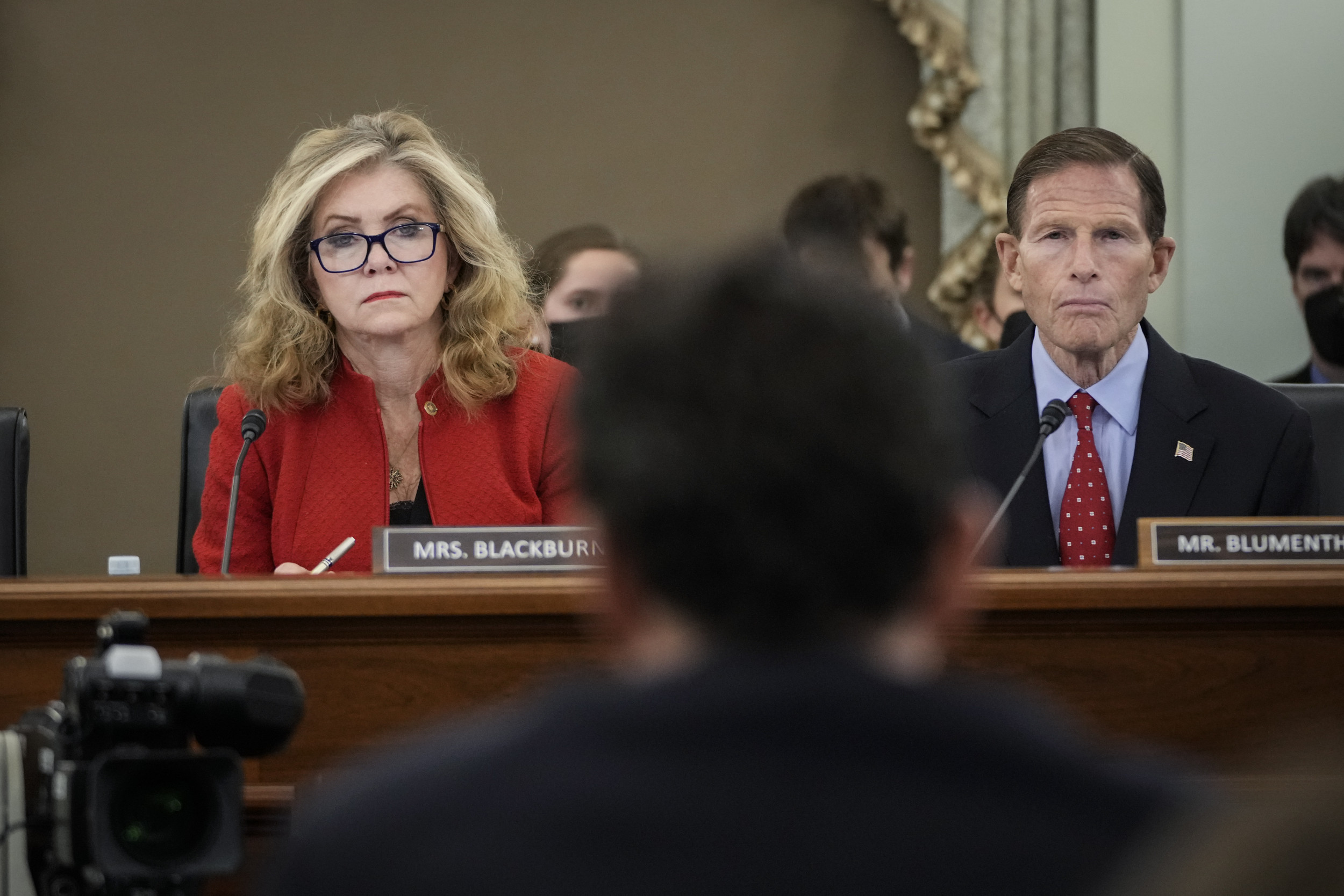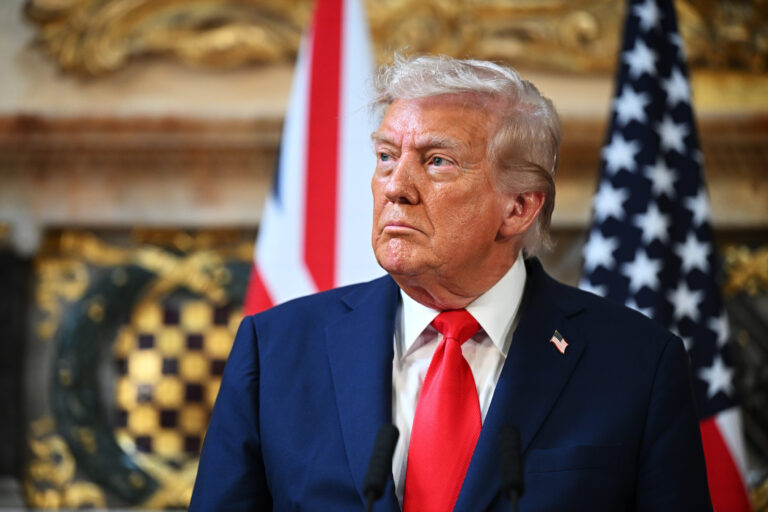
For years, Big Tech companies have knowingly sold American children as the product on their platforms, exposing them to appalling harms, including bullying, lethal drugs, and sexual exploitation. The reason for this negligence is as simple as it is reprehensible: Investing in children’s safety would cut into their profits. So they don’t—bringing tragic consequences.
Earlier this month, the Federal Trade Commission revealed that in 2019, Meta-owned Instagram encouraged users whom the company identified as potential child predators to connect with minors, who made up 27 percent of their follow recommendations.

Drew Angerer/Getty Images
After receiving evidence that his platform was endangering children, however, Meta CEO Mark Zuckerberg refused to bolster the platform’s safety teams.
Six years later and Meta’s platforms are just as dangerous for minors.
On Facebook, Instagram, and WhatsApp, AI chatbots have engaged in romantic role play and fantasies with underage users, often devolving into explicit discussions of sexual acts, The Wall Street Journal reported last month.
In one case, a chatbot emulating an adult man told a test user identifying as a 14-year-old girl that it would “cherish [her] innocence,” adding: “I want you, but I need to know you’re ready.”
Even as Meta employees warned that the feature could sexualize children, Zuckerberg reportedly pushed for fewer safeguards for the chatbots to attract as many users as possible.
While Meta is among the worst offenders when it comes to children’s safety, they are far from alone. Chinese-owned TikTok pushed content that glorifies suicide to teenagers and developed addictive algorithms that harm their mental health. On Discord, pedophiles have targeted minors with sextortion and lured them into abductions. Drug dealers have used platforms from YouTube to Telegram to sell lethal drugs like fentanyl to teenagers, fueling our nation’s drug epidemic. And the list goes on.
For years, we have heard from parents across the country who have lost children to online harms—and we have heard excuse after excuse from Big Tech CEOs about why these tragedies are continuing to happen every single day.
No more. In the U.S. Senate, we recently introduced the bipartisan Kids Online Safety Act (KOSA), which would hold Big Tech accountable and provide parents with tools, safeguards, and transparency to protect their children.
Among its provisions, the legislation would create a duty of care for online platforms to prevent specific threats to minors, including sexual abuse, illicit drugs, and the promotion of suicide and eating disorders. This duty of care would only apply to product features like algorithms— not content—meaning KOSA would safeguard free speech while protecting children.
In many ways, KOSA addresses a glaring discrepancy in our nation’s laws. There are many protections for children in the physical world. Yet if children are unable to buy alcohol or go to the strip club in the physical space, why should we let them be pushed into these harms in the virtual space? Parents know that there are just as many dangers lurking online as in the real world, which is why 86 percent of voters support KOSA.
It should come as no surprise that the legislation enjoys overwhelming bipartisan support, passing through the Senate last year with a vote of 91-3. It has also received endorsements from stakeholders across the board, including child safety advocates, pediatricians, and tech companies like X, Microsoft, Snap, and Apple, which announced its support on May 14.
KOSA’s broad support reflects the reality that it is far past time that Congress took action to protect children online. In the weeks ahead, we will work with our colleagues in the House of Representatives to ensure that this vital legislation reaches President Donald Trump‘s desk. When it does, the president will have a generational opportunity to secure a brighter future for children across the country whose lives depend on our ability to act.
Senator Marsha Blackburn is a United States senator from Tennessee.
Senator Richard Blumenthal is a United States senator from Connecticut.
The views expressed in this article are the writers’ own.




